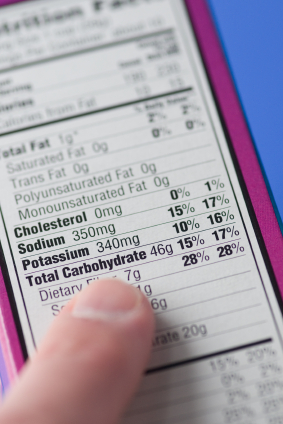High Potassium Foods to Limit on the Kidney Diet
 High potassium is a concern for people with chronic kidney disease and those on dialysis because it is very dangerous. Extremely high levels can make your heart stop, and the scary part is you do not feel anything until potassium is quite high.
High potassium is a concern for people with chronic kidney disease and those on dialysis because it is very dangerous. Extremely high levels can make your heart stop, and the scary part is you do not feel anything until potassium is quite high.
Symptoms of high potassium include tiredness, weakness, muscle cramps and irregular heartbeat.
High potassium levels occur when the kidneys are not working well enough to remove adequate amounts of potassium. In early stages of kidney disease (stage 1 and stage 2) potassium usually stays in the normal range. It goes higher in later stage 4 and stage 5 and at end stage renal disease (ESRD). Some people in stage 3 kidney disease may have high potassium but many others have normal potassium and can eat a regular amount of potassium in their diets.
Medication such as potassium-sparing diuretics and some blood pressure pills also contribute to elevated potassium. Normal potassium lab values for people with chronic kidney failure is 3.5-5.0 mEq/L. For dialysis patients the goal is 3.5 to 5.5 . Potassium levels above 6.0 are dangerous and require a low potassium diet, medication change and/or dialysis to help reduce potassium to a safe range. A low potassium diet around 2000 mg a day is usually recommended for people who need to restrict potassium intake.
Your dietitian can provide a list of high potassium foods and give guidance on how often and how much you can have from the food list. There may be some foods they recommend you avoid altogether. However most people on a low potassium diet can work in small amounts of their favorite foods.
In addition to this list of high potassium foods, read food label to see if potassium is listed on the Nutrition Facts or in the ingredient list. Avoid all soups and low sodium foods that contain potassium chloride because this ingredient adds lots of potassium to foods.
For more help with potassium control read DaVita.com article “Potassium and Chronic Kidney Disease” and use low potassium recipes from DaVita’s collection of kidney-friendly recipes.
This article is for informational purposes only and is not a substitute for medical advice or treatment. Consult your physician and dietitian regarding your specific diagnosis, treatment, diet and health questions.
Additional Kidney Diet Resources
Visit DaVita.com and explore these diet and nutrition resources:
DaVita Kidney-Friendly Recipes
This article is for informational purposes only and is not a substitute for medical advice or treatment. Consult your physician and dietitian regarding your specific diagnosis, treatment, diet and health questions.

Recent Comments